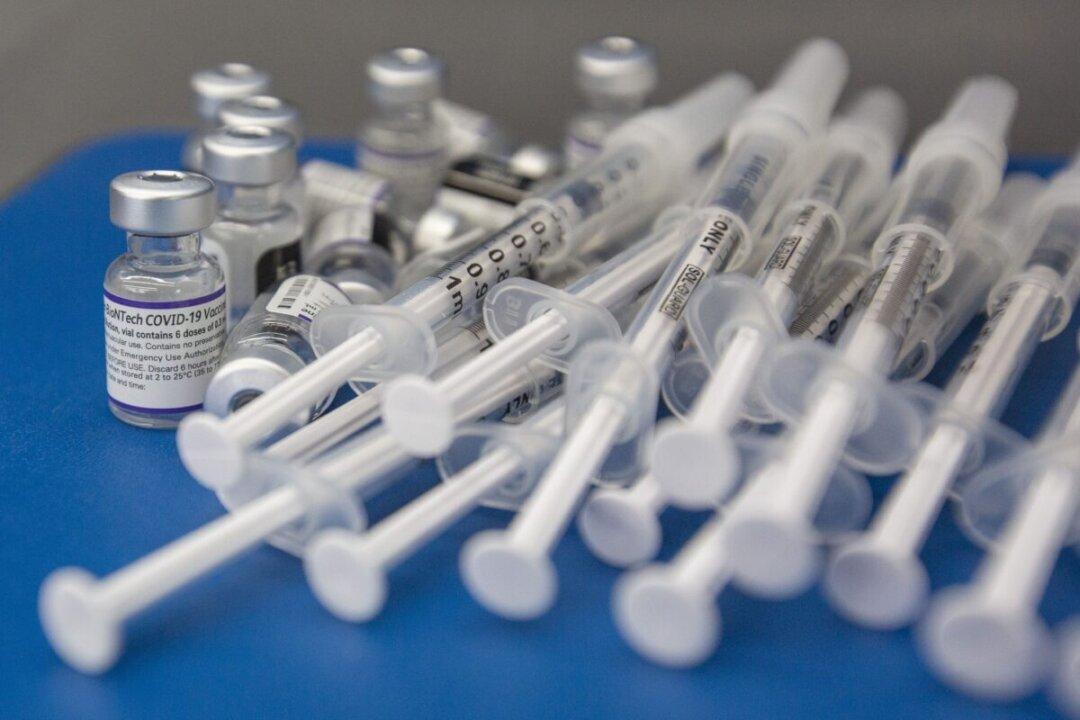The leadership of the U.S. Food and Drug Administration is defending its approvals of new booster vaccines for COVID-19 without completed human trials.
“This is a type of vaccine that has now been given to billions of people and we have a good understanding of how it works, so it’s not like something just coming out of the hopper with just animal studies,” FDA Commissioner Robert Califf said on Aug. 31 during a virtual press conference on the authorization of the new boosters.




